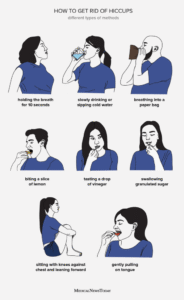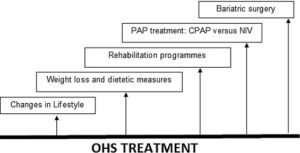Painful Ejaculation (Male Dysorgasmia)
Painful Ejaculation (Male Dysorgasmia): Understanding the Causes and Solutions
Reading Time: 14 mins
Experiencing pain during ejaculation can be alarming. For some, this issue may be temporary, while for others, it may be a chronic problem. Known as painful ejaculation or male dysorgasmia, this condition affects approximately 10% of people with penises. The pain can occur unexpectedly and last for varying durations, ranging from short-lived episodes to frequent discomfort. This condition is also referred to as dysejaculation, odynorgasmia, or orgasmalgia. The causes of dysorgasmia are numerous and can include infections, prostate issues, and nerve conditions, making it crucial to seek medical advice to identify the root cause and determine appropriate treatment.
Symptoms of Painful Ejaculation
Painful ejaculation is a common yet often unreported symptom in individuals with penises. The discomfort can occur during different stages of ejaculation:
-
Emission Stage: This is when sperm and fluids are ejected from the testicles, prostate, and seminal vesicles.
-
Expulsion Stage: During this stage, muscles in the pelvic area contract to propel semen through the urethra.
Although dysorgasmia typically refers to pain in the penis and urethra, the discomfort can sometimes extend to the testicles, scrotum, lower abdomen, rectum, or perineum (the area between the anus and genitals).
What Does Dysorgasmia Pain Feel Like?
Pain associated with male dysorgasmia can range from a dull ache to excruciating discomfort, depending on the underlying cause. The pain may last for a few seconds or persist for up to two days. In some cases, blood may appear in the semen, a condition known as hematospermia. What differentiates dysorgasmia from other types of pain in the male reproductive tract is that the discomfort directly results from orgasm and ejaculation.
Possible Causes of Painful Ejaculation
Painful ejaculation can arise from several different causes, and in some cases, the exact reason remains unknown (idiopathic). While most causes are not life-threatening, dysorgasmia can significantly affect self-esteem, quality of life, and sexual performance. Below are some common causes that medical professionals typically investigate when diagnosing male dysorgasmia:
1. Lower Urinary Tract Infections (UTIs)
A study published in 2020 in Cureus reported that one in four men experience painful ejaculation as part of a lower urinary tract infection. These infections affect the bladder, urethra, prostate, and related structures. The most common bacterial cause of UTIs is Escherichia coli (E. coli), though other bacteria may also be responsible. Men with diabetes, those who use a urinary catheter, or those with an enlarged prostate are at a higher risk.
2. Inflammatory Conditions
Bacterial, viral, or fungal infections can impact the male reproductive system, including the testicles, prostate, urethra, and epididymis. Sexually transmitted infections (STIs) such as chlamydia, gonorrhea, syphilis, and trichomoniasis can cause painful ejaculation. These infections may lead to swelling in the reproductive organs, resulting in:
-
Orchitis: Swelling of the testicles
-
Prostatitis: Swelling of the prostate gland
-
Urethritis: Swelling of the urethra
-
Epididymitis: Swelling of the epididymis
3. Chronic Prostatitis
Chronic prostatitis, also known as chronic pelvic pain syndrome (CPPS), affects about 30% of men with the condition, leading to painful ejaculation. This condition can be caused by bacterial or non-bacterial factors and can result in long-term discomfort during ejaculation.
4. Enlarged Prostate
Benign prostatic hyperplasia (BPH), or an enlarged prostate, commonly affects older men. BPH can cause difficulty urinating, frequent urination, and painful ejaculation. Prostate enlargement may also lead to other urinary symptoms, such as nighttime urination and urgency.
5. Obstructive Conditions
Certain health conditions can block the flow of sperm or seminal fluid, causing severe pain during ejaculation. These include:
-
Urethral Stricture: Narrowing of the urethra due to infection, injury, or inflammation
-
Ejaculatory Duct Obstruction: Blockage of the ejaculatory duct, often caused by a UTI or cysts
-
Seminal Vesicle Calculi: Hardened mineral deposits in the seminal vesicles
-
Pelvic Surgery: Surgeries like vasectomy or hernia repair may result in nerve compression or scarring.
6. Pudendal Neuropathy
Pudendal neuropathy, or pudendal neuralgia, is a chronic pain condition caused by damage to the pudendal nerve, which supplies the pelvic area. During ejaculation, nerve compression or entrapment can lead to pain, typically felt in the perineum or lower buttocks. Activities such as prolonged sitting, cycling, or horseback riding are common causes of this condition.
Medications That Can Cause Painful Ejaculation
Certain medications, especially antidepressants, can contribute to painful ejaculation. Tricyclic antidepressants and selective serotonin reuptake inhibitors (SSRIs) are commonly linked to dysorgasmia. These drugs can also cause other sexual side effects, such as a reduced libido or erectile dysfunction. Medications that may cause painful ejaculation include:
-
Anafranil (clomipramine)
-
Effexor XR (venlafaxine)
-
Prozac (fluoxetine)
-
Norpramin (desipramine)
Treatment for Painful Ejaculation
The treatment for painful ejaculation depends on the underlying cause. In many cases, addressing the root cause resolves the symptoms. For some individuals, treatment may involve:
-
Antibiotics for infections
-
Alpha-blockers to relax the bladder neck in cases of prostatitis
-
NSAIDs or acetaminophen to manage pain and inflammation
-
Pelvic floor exercises or physical therapy to address nerve or muscle-related issues
If no specific cause is identified, doctors may prescribe muscle relaxants or other medications to help alleviate the symptoms.
Frequently Asked Questions
What is Dysorgasmia Pain Like? Dysorgasmia pain can range from mild discomfort to excruciating pain and is typically felt during or after ejaculation.
What Causes My Abdominal Pain When I Urinate? Abdominal pain during urination can be caused by a variety of conditions, including urinary tract infections, prostatitis, or bladder issues. Consult a healthcare provider for an accurate diagnosis.
Do I Have an Enlarged Prostate or Prostate Cancer? An enlarged prostate (BPH) is common in older men and is not cancerous, but it can cause symptoms like painful ejaculation. Prostate cancer may present similar symptoms, so it’s important to seek medical evaluation for a proper diagnosis.
Can Medications Cause Painful Ejaculation? Yes, certain medications, particularly antidepressants, can lead to painful ejaculation as a side effect. Discuss any concerns with your healthcare provider.
Expert Tips
-
Stay informed about potential seasonal health trends or conditions affecting your reproductive health.
-
For those with pelvic discomfort, be mindful of activities that may exacerbate the pain, such as prolonged sitting or strenuous exercise.
Key Takeaways
-
Painful ejaculation, or dysorgasmia, can stem from various causes, including infections, prostate issues, or nerve problems.
-
Identifying the underlying cause is crucial for effective treatment.
-
If you experience persistent or severe pain during ejaculation, seek medical advice for proper diagnosis and care.



